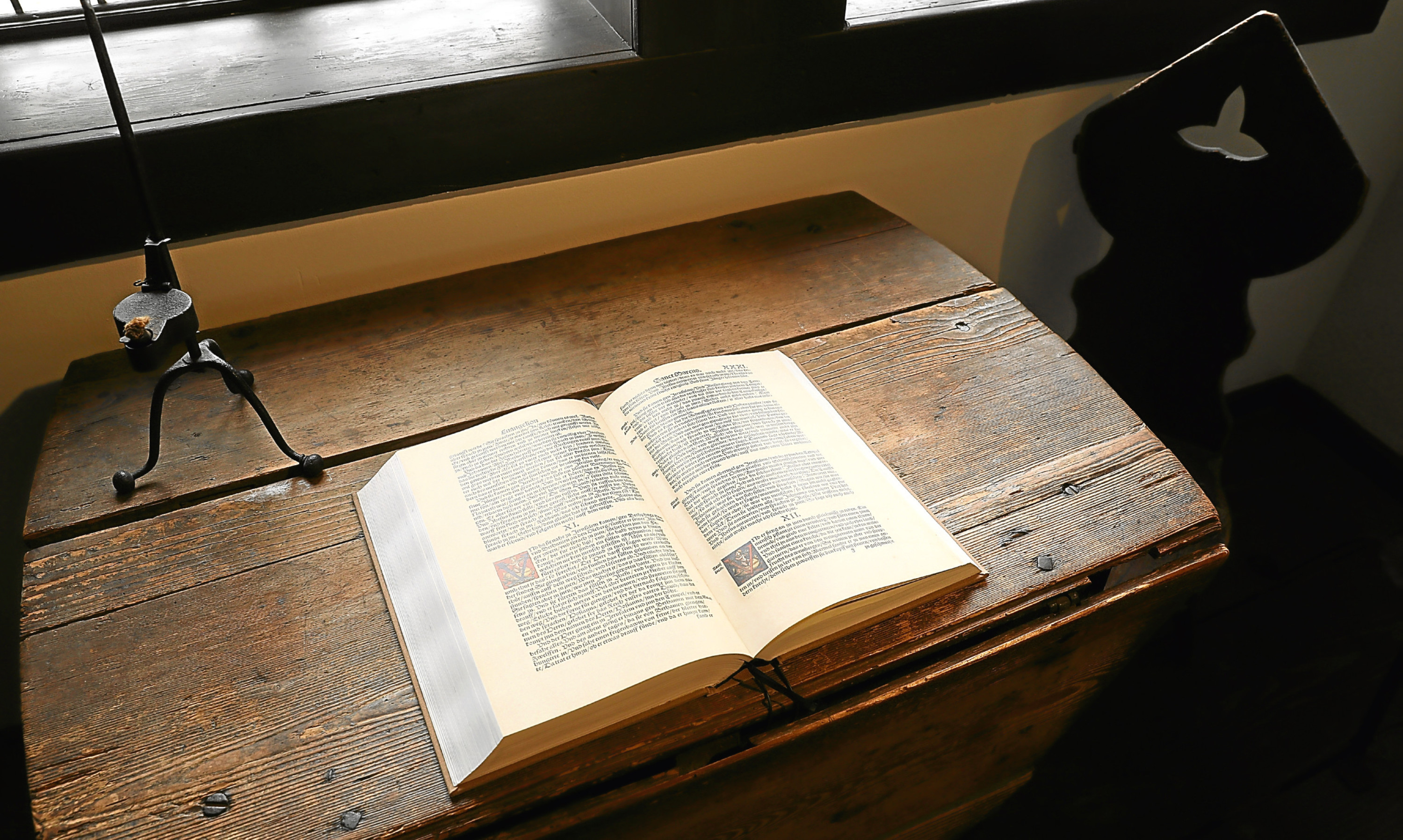Sir, – It would be helpful if when Rev Dr John Cameron writes about other churches, he gets his facts right (July 25).
Contrary to what he stated, the Free Church of Scotland unequivocally condemned slavery in the 19th century.
Indeed my own church, St Peter’s, was at the forefront of the anti-slavery campaign in Dundee.
The argument he refers to concerns whether to accept money which came from those who had an association with slavery. But the principle of slavery itself being wrong was never in doubt.
What is more concerning than Dr Cameron’s cavalier approach to history, is his cavalier approach to the Bible, which, as a minister of the word, he is supposed to teach.
He complains that if we stick to the Bible, God’s living and enduring word, it is equivalent to creating a paper pope – whereas the reality is that churches which move away from the authority of Bible tend to decline and end up creating their own authoritarian structures.
As the great St Augustine said: “If you believe in the Bible what you like, and leave out what you don’t like, it’s not the Bible you believe but yourself.”
David Robertson.
St Peter’s Free Church,
4 St Peter Street,
Dundee.
Concentrate on wildlife
Sir, – The cherry picking of wind statistics from “independent” conservation group WWF continues unashamedly as it uses its valuable donated resources to help promote the wind industry.
Luckily the consumer is beginning to realise what a load nonsense it all is.
Firstly, WWF says wind supplied six days’ power out of 181 which leaves even the mathematically challenged to ask what happened on the other 175 days?
WWF omits to tell us, during the same period, how many thousands of megawatts we had to import from UK nuclear and fossil fuels sources to keep the lights on or how many millions of pounds of constraints we have paid to the operators to switch turbines off when demand was low to protect the grid.
Most crucially, WWF refuses to accept that the over deployment of weather-dependent energy is catastrophic for our energy security.
It prefers to talk about climate change and low carbon when much of the pollution caused by wind development, both here and abroad, is not even factored into emissions savings calculations making claims of clean energy disingenuous to say the least.
WWF should stick to what it was set up for. Energy is clearly not its field of expertise and its encouragement of the SNP government to allow the destruction of thousands more acres in Scotland for volatile, unreliable wind is not appreciated by us or the wildlife it is supposed to protect.
Lyndsey Ward.
Darach Brae,
Breakachy,
Beauly.
Threats to UK energy security
Sir, – So now the answer to our future electric power problems is batteries.
As the hole that these green and renewable people dig for themselves gets deeper, the more crackpot will be the answers they create to cure their problems.
Thanks to their unworkable ideas, we are now in a spiral of descending and costly madness that can only end in the cold and dark.
Malcolm Parkin.
15 Gamekeepers Road,
Kinnesswood.
We need second EU referendum
Sir, – It was with bemusement I noticed an open letter from left-wing Brexiteers attacking those who had called for a halt to Brexit.
In it, without a sense of irony, they pointed to the EU as thwarting the desire to create a “better, fairer and more equal society”.
As the negative impacts of Brexit become clearer, with falling living standards, rising inflation, slower growth and lower productivity, it is the poor that will be hit hardest.
This is those same poor the left are supposedly trying to help. Don’t just take my word for it, this is a concern noted by anti-poverty campaigners who have warned of the adverse impact of Brexit on families on low incomes.
The claim that to halt the Brexit process is undemocratic is even easier to address. The soft Brexit that was envisaged by many has now become a pipe dream, replaced by the even colder and harder economic realities of a hard Brexit. The scales are beginning to fall from the eyes of those, who in all good faith, voted for a pain-free Brexit.
A shift in public opinion has already begun, even without a political lead. If both public and political opinion started to shift towards ending Brexit, the route would be opened up to a second referendum.
The political environment in the UK is both chaotic and unpredictable.
If public opinion continues to shift, and more voices speak out, then UK politicians may find themselves pushed towards facing up to the huge damage of Brexit and finally arguing for the UK to think again and to remain.
Alex Orr.
77 Leamington Terrace,
Edinburgh.
